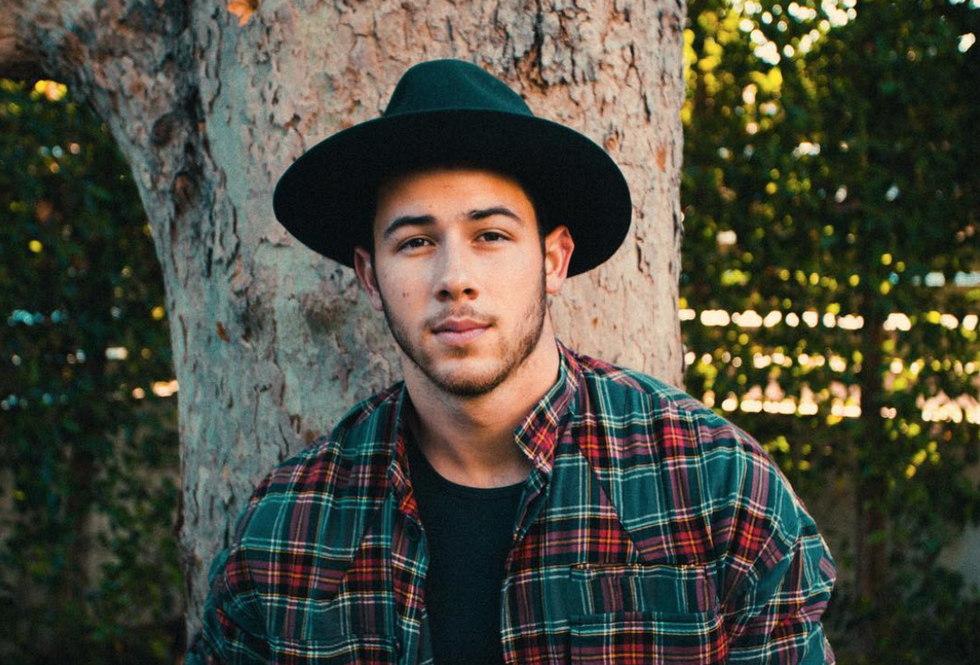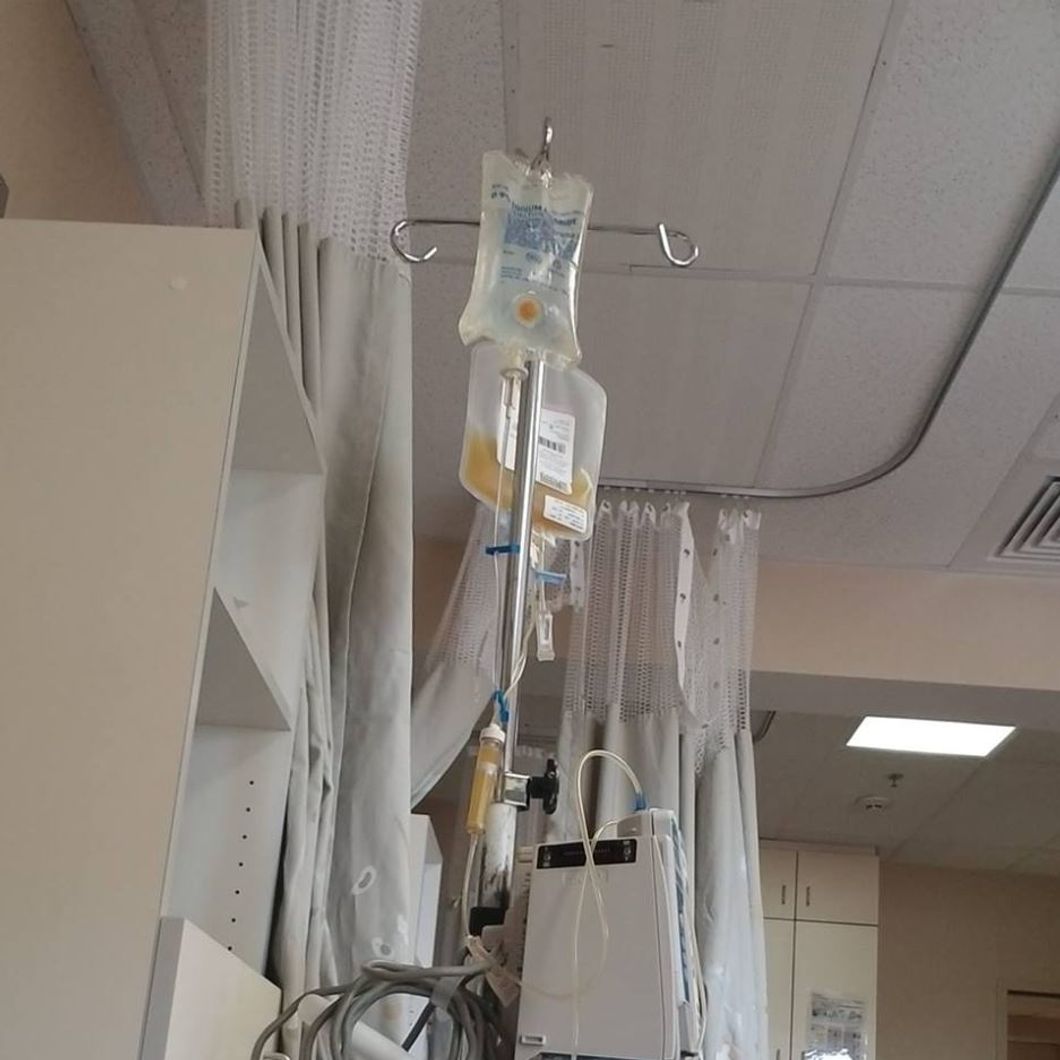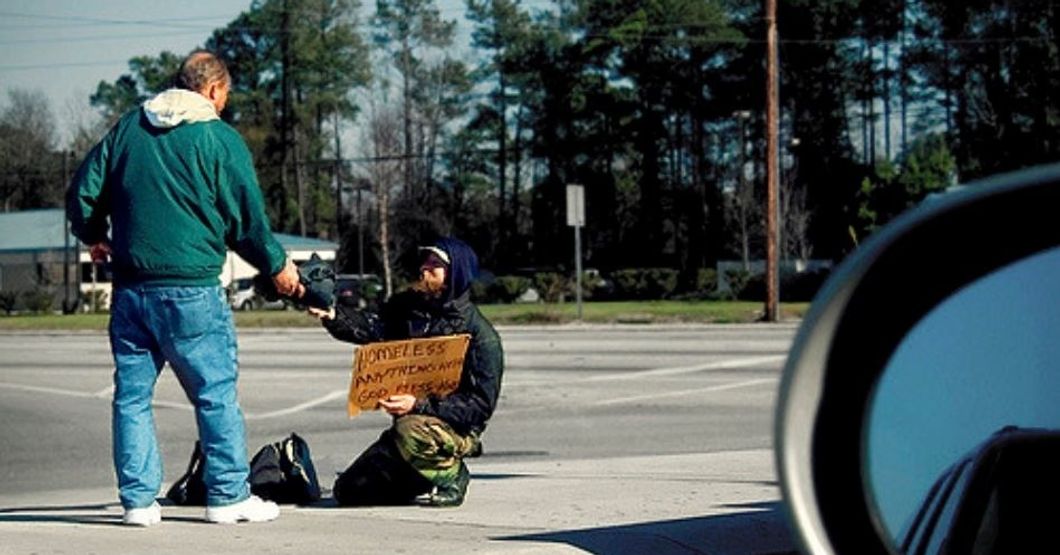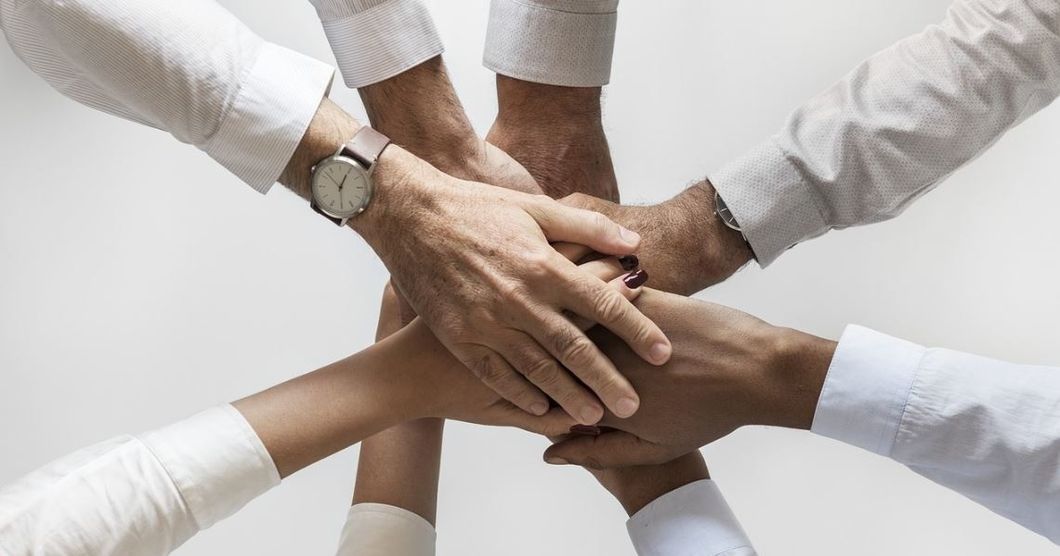8 Things I Wish People Knew About Type 1 Diabetes
There are so many misconceptions, it's hard to keep track.
I was diagnosed with Type 1 Diabetes when I was 11 years old. In the 8 years that I have lived with this condition, I have heard many, many, many ignorant comments. Honestly, I can't put all the blame on individuals for being ignorant. According to the ADA, around 1.25 million Americans have Type 1. That's a large number of people dealing with a pretty much invisible illness, I didn't know anything about Type 1 Diabetes until I was diagnosed. Living with diabetes poses many unique challenges, I think that clearing up some common societal misconceptions can make that one less issue that Type Ones have to deal with.
1. It is not caused by sugar
I could have literally eaten all organic, paleo, gluten free, whatever and still gotten Type 1 Diabetes.
2. There is no cure
If I could eat cinnamon, drink special drinks, are try a weird diet to not have Type 1 anymore, don't you think I would?
3. The needles are not comfortable
Every time someone sees me inject insulin somewhere, I'm met with "Doesn't that hurt?" Not to be rude, but stabbing a needle into my body doesn't feel GOOD. You get somewhat used to it but it doesn't feel good.
4. I can eat anything
I can eat anything as long as I correctly count the carbs and give the correct amount of insulin. Cookies? Yes. Cake? Yes. I may say no sometimes because no one should say yes to dessert all of the time.
5. I can do anything
I played three varsity sports in high school and currently am in nursing school on the opposite coast of my own coast. Yes, it is a little more difficult and requires a lot of extra effort and planning, and yes there is a slight, increased risk but I can follow my dreams just like anyone else.
6. It's unpredictable
I can literally do the exact same thing two days in a row, and end up with extremely different blood sugars. Sometimes things affect my blood sugar that are out of my control: period, extreme weather, sickness, a change in sleep schedule, stress, etc.
7. It's largely invisible
Sure you may see me check my blood sugar and you may be able to see my pump site but what you don't see is the sleep I missed the night before because I was up treating a high/low, the constant worry of do I have enough supplies, what's my blood sugar when am I going to eat, you don't see the fatigue, the headaches, the physical and mental exhaustion, the nausea. You probably haven't seen me when I'm so low and confused that I'm not sure what is happening around me. The next time someone tells me that, "At least you have the pump which does it all for you," I'm going to send them this article.
8. It makes me stronger
Despite all the things listed in the precious point, I am grateful for my diagnosis. It has brought me in contact with so many amazing, fellow Type 1 Warriors. It has given me perspective, and appreciation for the little length. It has made me stronger, resiliant, and determined. It has sent me on my path to become a nurse. It has helped shape me into who I am.









































Stop Saying, 'I Don’t Want To Get Diabetes,’ It's Rude And Ignorant To Those Who Are Type 1 Diabetic
Nobody wants to "get" diabetes, but some of us have no choice.
This statement implies that is is a choice to be diagnosed with diabetes as if it is some very controllable condition where I have the ability to decide whether it affects me or not. This is not true.
When I was three years old, I was diagnosed with type 1 diabetes also known as juvenile diabetes because it typically, but is not limited to, beginning in adolescence. Type 1 diabetes is a chronic condition where my pancreas no longer produces insulin. This is caused by my immune system attacking the pancreas, ultimately destroying the cells that create insulin. As of right now, there is no explanation known for what ultimately makes the immune system do this, and there is no cure for the autoimmune condition.
Thus, as a type 1 diabetic, I have no choice but to be entirely insulin dependent. Whenever I consume carbohydrates, I must administer insulin to my bloodstream just like how non-diabetic people having a fully functioning pancreas that releases the same hormone whenever they introduce carbohydrates to their digestive systems. The amount of insulin that I administer is based on the number of carbs that I consume; the carbs per insulin unit ratio varies based on the individual and also has the potential to change just as how the pancreas secrets insulin within an individual's body at rates that are unknown. Therefore, finding ways to treat diabetes can be difficult for there lacks a "one size fits all" template for what works best for each diabetic. (This is important to keep in mind for all health conditions: what works well for one person does not necessarily mean that it will work well for a different person.)
There are a lot of other factors that are imperative for my mindful attention in order to stay healthy with this chronic condition. Monitoring blood sugar levels, counting carbohydrates, gaining a true sense of body awareness, and attending doctors appointments are some examples of these other factors that are necessary to keep on top of while living with type 1 diabetes. As you can tell, this chronic condition can easily become overwhelming.
Did I want to be diagnosed with type 1 diabetes? No.
Did I have a choice as to whether I was diagnosed with type 1 diabetes? No.
Do you have the ability to control what statements you make when speaking in public? Yes, you most certainly do.
I urge people to resist from saying the phrase, "I don't want to get diabetes" when offered dessert or saying something similar when asked why they are cutting back on how much sugar they include in their diet. Perhaps these comments are in reference to "getting" type 2 diabetes also known as adult-onset diabetes. This condition is different from type 1 diabetes in the sense that the pancreas does not produce enough insulin or the body has developed a resistance to the insulin that is produced; the body does not use insulin efficiently. Another difference is that type 2 diabetes can be influenced by the risk factors of obesity and family history. Finally, type 2 diabetes can also be reversed; this means that through lifestyle choices such as diet and exercise, the effects of type 2 diabetes can be alleviated because the pancreas still does make insulin for type 2 diabetics. This is not the case for type 1 diabetes, thus, these are two different conditions.
So let's say that the ignorant comment of "I don't want to get diabetes" is made in reference to type 2 diabetes. This is still an awful thing to say. Of course, nobody "wants to get" diabetes; why would they? However, even in cases of type 2 diabetes, there are factors that are still beyond the individual's personal control, and even after the diagnosis occurs, as I stated earlier, there are differences in how each individual responds to treatment options. What works for one may not work for another.
Unfortunately, I have been in the presence of people who have made comments within this subject matter. Being a type 1 diabetic myself, the situation is incredibly awkward. Whether the person who made the statement knows that there is a diabetic present in the room or not, they should not be speaking like this. Making this comment implies that there is a concrete choice as to whether an individual is diagnosed with diabetes, of any type, or not. Making this comment implies that you, the commentator, is above those of us who are already diabetic; you are looking down on us in a way because your comment insinuates that you would never want to endure the lifestyle of a diabetic. Making this comment implies that you, the commenter, have no idea what the differences between type 1 and type 2 diabetes are, or that there even are different types of diabetes and how to distinguish between the complications of each. Making this comment implies that you, the commenter, are extremely, unmistakenly, ignorant.
In the instances that I have heard this quick comment be made, some people present in the room knew that I was type 1 diabetic and some people did not. Nobody pointed me out or made sideways glances at me to notice my facial expression. I was not offended by the comment, nor was I embarrassed that I am type 1 diabetic while there is this person saying that they "don't want" what I have. I was, however, extremely disappointed in the comment. I was partly disappointed in the commenter for making such an ignorant statement (that I am sure was probably not meant to be harmful at all), but I was also majorly disappointed in society as a whole. Instances like this have made me realize that, collectively, society is also ignorant of the differences between types of diabetes. Generalizing this condition can result in the cultivation of uncomfortable situations and an inability to understand the complications of each type of this condition.
Finally, and most importantly, whenever I endure experiences such as the one described, I am refreshed of just how utterly important it is for all of us to choose our words wisely and precisely. Even if we do not intend to cause harm by our words, the possibility of that happening is always present. When people say "I don't want to get diabetes," I am not sure they realize just how terrible this statement sounds leaving their lips. In my mind, my first reaction is that I would never say anything like this, but then again, I have this reaction because I am type 1 diabetic. Similarly, would you ever make the statement "I don't want to get cancer" when offered a free session in a tanning bed or "I don't want to get liver damage" when offered a beer? No, because there are so many genetic and epigenetic factors that can contribute to cancer diagnoses and the same goes for liver failure.
It sounds absurd to even read those two examples. How can somebody solely correlate tanning beds with "getting" cancer and beer with "getting" liver damage when there is an abundance of other contributing factors as well as different types of levels of severity regarding these health issues? Well, I ask myself the same question regarding the statement of "I don't want to get diabetes" when somebody is offered something sweet. How can somebody solely correlate sugar with "getting" diabetes when there are so many other factors that are potentially involved? While it is possible that these pairs are related in terms of causation to some extent (tanning beds/cancer, beer/liver damage, sugar/diabetes) there are so many things that we do not know exactly and making generalized statements like my examples above prove to be inappropriate.
It sounds absurd because it is absurd.
Thus, let's all strive to create an environment where we do not make people feel ashamed or uncomfortable based on ignorant statements regarding health conditions that we may or may not know anything about. You never know what people are going through or how a genetic condition, health issue, or disease affects them. Furthermore, you never know what health experiences you will one day be exposed to, whether that condition will affect you personally or if it will affect a close family member or friend. Either way, it will change your perspective immensely.
I vow to always choose my words carefully and thoughtfully to ensure that I can clearly articulate a point with consideration for whoever is present in my audience; you should too.